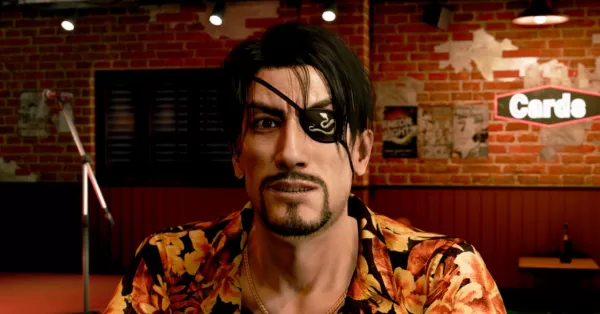RGG Studio Directors explain their approach to reusing assets in Like a Dragon
A lot of thought is put into what the devs at RGG Studio bring back from previous Like a Dragon games.

We recently got to interview the director and the producer of Pirate Yakuza in Hawaii, and there, we talked about the approach of RGG Studio when it comes to reusing assets, as regards the quick development times of the Like a Dragon games.
While game development cycles have skyrocketed over the years, RGG Studio is one of the few studios to buck the trend. After all, the studio has been pumping out new Like a Dragon games almost every year.
With this in mind, this was one of the things we asked Pirate Yakuza in Hawaii’s Chief Director/Producer Ryosuke Horii and Game Director Yasuaki Uehara during a recent roundtable interview with SEA gaming press.
Specifically, we asked Horii and Uehara how they manage to pump out games as fast as they do. In response, Horii said:
“What really took for us to make the game in one year is just plain and simple, we worked really hard. That’s the number one reason we were able to put out the game in one year.”
- Ryosuke Horii (Pirate Yakuza in Hawaii Chief Director/Producer)
- Yasuaki Uehara (Pirate Yakuza in Hawaii Director)
As Pirate Yakuza in Hawaii features new ocean maps and Pirate ship gameplay, the fact that RGG Studio was able to ship the game in around a year is definitely a testament to the hard work the team has put in.
Of course, there’s also the fact that RGG Studio is in a unique position given that they don’t have to make a new map with every new installment. What’s more, many assets (including enemies, maps, and mini-games) are reused for new series entries. For instance, Pirate Yakuza in Hawaii sees the Honolulu map from Infinite Wealth return, along with the Dragon Kart minigame and notable side characters. This aspect of reusing assets for Like a Dragon games is even a key point of discussion during the studio’s GDC 2025 panel.
This was also something Horii mentioned, as he followed up his initial statement by saying:
“Like a Dragon: Pirate Yakuza in Hawaii reused a number of assets from Like a Dragon: Infinite Wealth. We employed a lot of our know-how and a lot of the techniques that we fostered over the years to put the game together.”
When reusing elements from previous games, it can be easy to make the new game feel stale. Thankfully, RGG Studio has plenty of experienced developers who have built up a lot of knowledge and techniques to keep things fresh.
There’s also an element of trial-and-error when it comes to development, especially when new features or mechanics are added to give a fresh spin on elements taken from previous titles. This is another way that the studio is aligned on. Uehara explained:
“As Mr. Horii mentioned earlier, it really is a matter of our know-how, and we employed a lot of trial and error as we approached the development of this title. On our team, we have a number of members who have the same attitude about optimistically using trial and error to come up with new ideas. We used that approach as we created the game.”

This combination of know-how and confidence in an involved trial-and-error process is important because, when a new Like a Dragon game brings back previous mini-games or maps, there are still some notable changes and additions.
For instance, Dragon Kart made a return in Pirate Yakuza, but this time, it has a new action-focused game mode, along with new circuits based on the Hawaii map. There’s also the fact that mini-games aren’t brought back just because the developers feel like it. What’s also important is that the previous mini-game is a good match for a new Like a Dragon game, both in terms of themes and gameplay.
Horii explained their approach as:
“When we decide what’s a fitting mini-game to add to one of our games, the number one thing we look at is the mini-game’s themes and whether or not it’s a good match for the title in question.
An example, since Pirate Yakuza in Hawaii takes place in, well, Hawaii, we wanted to make use of the fact that it’s a rather large city. That’s why Dragon Kart was a really good match for this particular game.
The previous version of Dragon Kart took place in Japan, but since Hawaii has larger streets to offer, we thought we could create an even better and newer experience by bringing it to Hawaii.
When we set out to bring back some of the mini-games, the number one thing that we consider is what we can do to add a new layer of fun to the mini-game.”

It’s fair to say that RGG being able to reuse entire maps and mini-games from previous entries is a major reason why they’re able to develop games fast. Based on our discussion though, it’s unfair to say that this makes it easy for the team. After all, smart reuse of assets requires know-how that the developers have built up over the years, coupled with their willingness to add new elements, even if it means plenty of trial-and-error.
If you ask us, RGG Studio definitely has a winning formula for the series, especially given their track record of releasing high quality titles practically every year.
Like a Dragon: Pirate Yakuza in Hawaii is available now on PS5, PS4, Xbox Series X|S, Xbox One, and PC via Steam.



